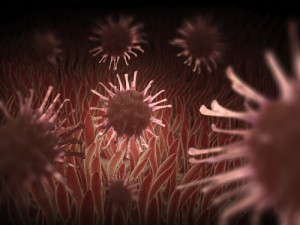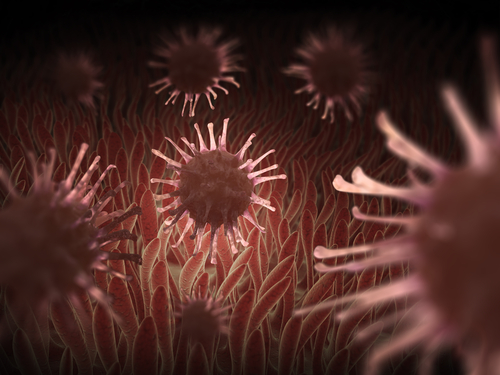 A new study entitled “Rapid changes in the gut microbiome during human evolution” describes how the human microbiome has been changing since the human–chimpanzee split. The study was published in the early edition of PNAS. The findings could have implications into developing therapies for GI-related diseases that leverage the use of and properly balance bacteria in the gut.
A new study entitled “Rapid changes in the gut microbiome during human evolution” describes how the human microbiome has been changing since the human–chimpanzee split. The study was published in the early edition of PNAS. The findings could have implications into developing therapies for GI-related diseases that leverage the use of and properly balance bacteria in the gut.
In order to understand how the human microbiome evolved, the authors sequenced the communities of microorganisms found in the gut of chimpanzees, bonobos, and gorillas, and reconstructed a phylogenetic tree to determine how the present microbiomes of humans diverged from these ancestors. As human samples, the authors collected microbiome samples from population groups in several U.S. cities, rural towns in Malawi, and pre-industrial villages in Venezuela.
They found that humans’ microbiome evolved at an accelerated rate, but are much less diverse when compared to apes. The shift in composition was directed towards an increase in Bacteroides, which help in digesting diets rich in animal protein and fat, thus indicating a microbiome evolving towards a specialized animal-based diet. Accordingly, the presences of Methanobrevibacter and Fibrobacter, which contribute for digestion of plant sources were significantly decreased.
Andy Moeller, a Ph.D. candidate at Yale University and study first author noted, “Our results suggest that the human microbiome changed substantially before the rise of modern lifestyles, perhaps even before the rise of agriculture. Human microbiomes are less diverse than those of our ancestors millions of years ago.”
Jose Clemente, Ph.D., an assistant professor at the Icahn School of Medicine at Mount Sinai and the study’s lead author, added, “It is important to keep in mind that modern lifestyle is radically different to that of our ancestors. We know diet can affect the types and abundance of different bacteria in the gut. Antibiotics are also powerful modulators of microbial content in the gut, and although they have saved millions of human lives by killing pathogens, their abuse can lead to a substantial depletion of diversity.I think the proliferation and overuse of antibacterial products in Western societies, and increasingly so in developing countries, is taking its toll on microbial diversity.”

